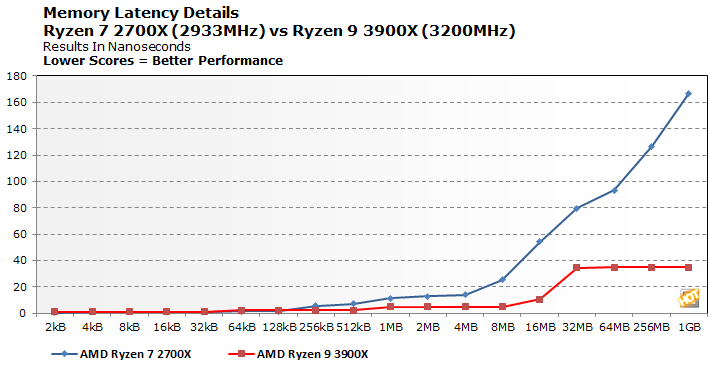AMD Ryzen 9 3900X And Ryzen 7 3700X Review: Zen 2 Impresses
AMD Ryzen 9 3900X Installed In The MSI MEG X570 Godlike Motherboard
When the Windows installation was complete, we installed all of the drivers necessary for our components, disabled Auto-Updating and Windows Defender, and installed all of our benchmarking software. When that process was done, we performed a disk clean-up, cleared any temp and prefetch data, and optimized all of the SSDs using Windows' built-in utility. Finally, we enabled Windows Focus Assist to minimize any potential interruptions and let the systems reach an idle state before invoking a test.
All of the systems, applications, and drivers were up-to-date as of July 1, 2019
|

|
We began our testing with the latest version of SiSoftware's SANDRA 2020, the System ANalyzer, Diagnostic and Reporting Assistant. We ran four of the built-in sub-system tests that partially comprise the suite with AMD's latest processors (CPU Arithmetic, Multimedia, Cache and Memory, and Memory Bandwidth). All of the scores reported below were taken with the CPUs running at their default settings, with 16GB of DDR4 RAM running at 3,200MHz, in dual-channel mode, on the MSI MEG X570 Godlike motherboard.


| Ryzen 9 3900X Processor Arithmetic |
Ryzen 9 3900X Multi-Media |


| Ryzen 9 3900X Memory Bandwidth |
Ryzen 9 3900X Cache And Memory |


| Ryzen 7 3700X Processor Arithmetic |
Ryzen 7 3700X Multi-Media |


| Ryzen 7 3700X Memory Bandwidth |
Ryzen 7 3700X Cache And Memory |

Because 3rd Gen Ryzen processors use CPU core chiplets and a separate IO die that houses the memory controller, we suspected there would some instances where memory latency could suffer, so we dug in a little deeper to see what we could find. It seems, however, that AMD's Infinity Fabric, the higher, officially supported DDR4 memory speed, and the processor's relatively large amount of cache synergistically result in consistently low latency characteristics. Memory latency on the Ryzen 9 3900X was significantly better than the Ryzen 7 2700X according to SANDRA.

L1, L2, and L3 cache latency with the Ryzen 9 3900X was also significantly better than the Ryzen 7 2700X. The large L3 cache on the Ryzen 9 3900X in particular offered latency that was more than twice as fast as the previous-gen CPU.

|
In the GeekBench test, we're stressing only the CPU cores in a system (not graphics or GPU architecture), with both single and multi-threaded workloads. The tests are comprised of encryption processing, image compression, HTML5 parsing, physics calculations and other general purpose compute processing workloads.

The Ryzen 9 3900X and Ryzen 7 3700X rocked the Geekbench tests as well. Singe-Threaded results were among the best and trailed only the Core i9-9900K. Their multi-threaded scores are particularly strong, however. The Ryzen 7 3700X actually pulled well ahead of the Core i9-9900K and the 12-core Ryzen 9 3900X beat the 16-core Threadripper 2950X. It wasn't quite able to catch the 18-core Core i9-9980XE, though.
|

The Ryzen 9 3900X and Ryzen 7 3700X's good latency characteristics, improved IPC and multi-threaded performance, massive game cache, and speedy PCIe 4.0 storage propelled them to the head of the pack in the system-level PCMark 10 tests.







